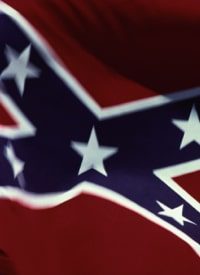
There are few bastions left against political correctness. Traditions, like the Confederate flag, have become highly controversial despite the fact that those who wish to honor that flag make a compelling case that their sentiment has nothing to do with racism or slavery. Most Confederate soldiers did not own slaves, and many Confederate officers, such as Robert E. Lee, disapproved of slavery.
The Confederates were, however, confederates: They believed in robust states’ rights. It was, perhaps, inevitable that those who worship at the shrine of political correctness would, in time, point their finger at collegiate athletics.
The University of Mississippi has one of the most storied football programs in America, producing three national championships and star players like Archie Manning and his Super Bowl-winning quarterback son Eli Manning. The school has won eight of the last nine bowl games it has played it. The fans are some of the most enthusiastic in the nation.
The unofficial fight song of the university is “Dixie” and its mascot has been a cane-toting Southerner with a goatee. Flying the Confederate flag has also been a standard way for students at Ole Miss to show support for their team. There is no evidence at all that the University of Mississippi football team, its fans, or its alumni are racist, yet that has not stopped the university administration from adopting a new mascot, the Rebel Black Bear Storied traditions are cast aside in pursuit of stamping out all vestiges of the state’s history.
The voluntary participation of fans in collegiate sports, however, can simply undo the foreign edicts of administrators. What would prevent, for example, students attending games from wearing a Confederate flag t-shirt? Who could stop fans from singing “Dixie” at college football games? Is the term “Ole Miss” also going to be banished to the penal colony of political correctness? How is having a “Black” bear as a team mascot not also displaying racial prejudice against blacks? There are, of course, no answers to these questions.
For decades now, Southerners have been trying to protect their history, which includes most emphatically the Civil War and the struggle of its soldiers to maintain an independent confederacy. Acknowledging and respecting history does not require endorsing bad parts of its history, like slavery. It does mean recognizing the nobility of many Confederate generals, such as Lee and Jackson. It means honoring the brave young men, often little more than boys, who entered ferocious battles in defense of their homes. It means recognizing an antebellum Southern culture that entailed more than simply slavery.
Increasingly, however, what people are allowed to respect about their past is governed by those who seek a bland, sterile uniformity in all public life and the abolition of American culture itself.


